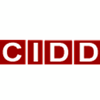The advent of social networking technologies over recent years has allowed for the rapid dissemination of information via the internet. Millions of people worldwide use online social networking services like Facebook and Twitter to provide not just general knowledge information, but also opinions about various aspects of their life, including sentiments regarding a variety of health-related practices. One of the most important health-related sentiments is in regard to vaccines and vaccination practices as they are the most critical aspect of disease outbreak prevention.
In a study published this month in PLoS Computational Biology, CIDD Assistant Professor of Biology Marcel Salathe and software developer Shashank Khandelwal examined vaccine sentiments expressed on Twitter during a six month period in 2009, during which there was a high incidence of pandemic influenza H1N1. Their data indicate that particular sentiments for or against the H1N1 vaccine tend to cluster both socially and geographically. This is critical as the dissemination of individuals with a certain attitude towards vaccines can affect immunization status distribution, which would consequently impact the risk of disease outbreak in a particular area. Importantly, the authors’ data regarding predicted vaccination rates were comparable to those which were collected via phone surveys by the CDC.
This research illustrates the potential opportunities made available by the use of social media to address and predict important health-related sentiments that could translate into critical changes in health behaviors. Using these services to study health-related issues is an important step in the implication of measures to increase health awareness, in this case regarding vaccination, to prevent future disease outbreaks.
Publication Details
Salathe M& Khandelwal S
Assessing vaccination sentiments with online social media: Implications for Infectious disease dynamics and control
Journal: PLoS Computational Biology
10: e1002199
DOI Reference




